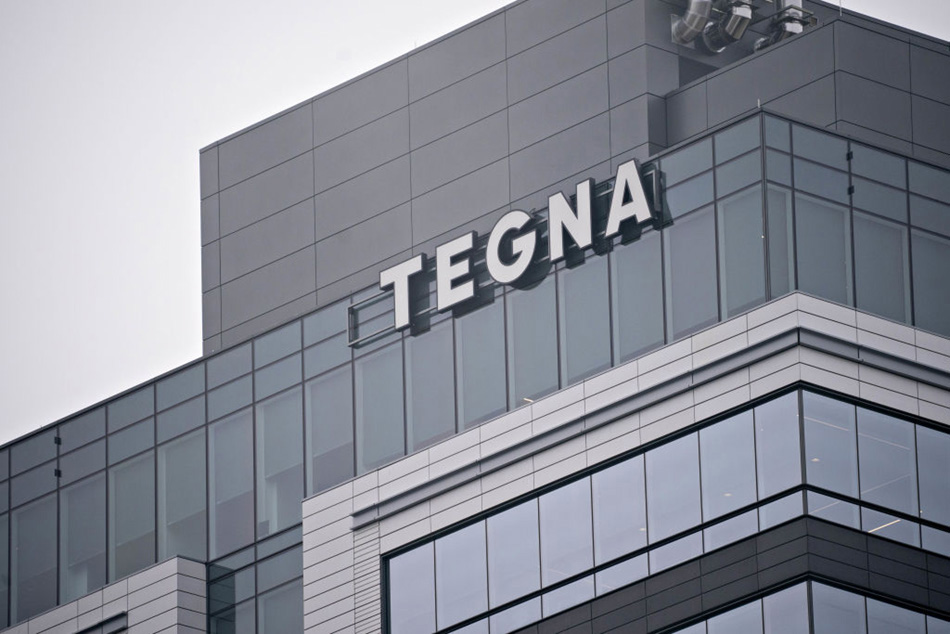Standard General, Tegna: Deal Opposition Is Legally Irrelevant
Merger partners also tell FCC petitions to deny and criticisms are factually inaccurate

The smarter way to stay on top of broadcasting and cable industry. Sign up below
You are now subscribed
Your newsletter sign-up was successful
Attorneys for Standard General and Tegna have told the Federal Communications Commission that petitions to deny their $5 billion-plus merger and station spinoff deal are both legally irrelevant and factually incorrect and should be rejected so the transaction can go through. The FCC has to sign off on the transfer of any station licenses.
That is according to a copy of the merging parties’ consolidated oppositions to those petitions and comments on the deal.
Standard General agreed to acquire Tegna in an $8.6 billion deal that includes the assumption of $3.2 billion in debt. Apollo Global Management (AGM) is providing some of the funding for the deal. AGM controls Cox Media Group (CMG), which will own some of the Tegna stations if the deal is approved.
Petitions to deny were filed by The NewsGuild-CWA and the National Association of Broadcast Employees and Technicians (NABET)-CWA and Graham Media Holdings.
Standard General and Tegna attorneys summed up the petitions and critical comments as representing basically three lines of attack: “(a) the Transactions will result in a reduction of local news and loss of journalism jobs; (b) MVPD programming costs will go up, ‘automatically’ increasing MVPD subscriber rates; and (c) Apollo Global Management, Inc. [which owns CMG] will have an attributable level of influence in post-Transactions Tegna.”
Also: Standard General CEO Doesn't Understand Opposition to Tegna Deal
The companies said a) and b) are both factually off base. The deals are not about local consolidation, they told the FCC, because Tegna will be smaller after the transaction and no new duopolies — two stations in a market owned by the same company — will be created. As to consolidation of local news, they say they have no “intention” of reducing the quantity or quality of local news or of cutting news staffers. And as for any increases in retransmission-consent fees, they did not say the fees would not go up, but said any increases would be based on “privately negotiated contracts” with MVPDs that the FCC has consistently declined to get in the middle of. At any rate, they argued, the FCC has never found such increases to equate with a public-interest harm.
The smarter way to stay on top of broadcasting and cable industry. Sign up below
They also pointed out that retrans bucks are what help provide the stable revenue stream that allows them to produce all that local news and to pay the salaries of the news employees.
As to Apollo Global Management having an attributable interest in Tegna, they said there were several reasons why that wasn't the case, including that AGM, which is helping finance the deal, would have to be 10 times larger to trigger FCC attribution rules, and then only in the four markets where Tegna and CMG both own stations.
Also: Standard Media CEO Deb McDermott Tells Tegna Staff News Jobs Won’t Be Cut
For those reasons, they told the FCC, the petitioners have failed to make a case that the grant of the license transfers is not in the public interest. Quite to the contrary, they said, the deal has obvious public-interest benefits.
They said the deal creates “the largest minority-owned and female-led television station group in U.S. history and dramatically increases minority broadcast ownership and viewpoint diversity.” Certainly promoting diversity in media ownership is a big priority for the FCC, given the dearth of minority and women station owners.
The companies added: “[T]he transactions comply with the Commission’s national ownership cap even without application of the UHF discount, do not require any waivers of the Commission’s local ownership rules, and do not involve the creation of any time brokerage, joint sales, or shared services agreements.”
Tegna owns 64 television stations in 51 U.S. markets. It also owns multicast networks True Crime Network, Twist and Quest, as well as advanced-advertising company Premion. ■
Contributing editor John Eggerton has been an editor and/or writer on media regulation, legislation and policy for over four decades, including covering the FCC, FTC, Congress, the major media trade associations, and the federal courts. In addition to Multichannel News and Broadcasting + Cable, his work has appeared in Radio World, TV Technology, TV Fax, This Week in Consumer Electronics, Variety and the Encyclopedia Britannica.

